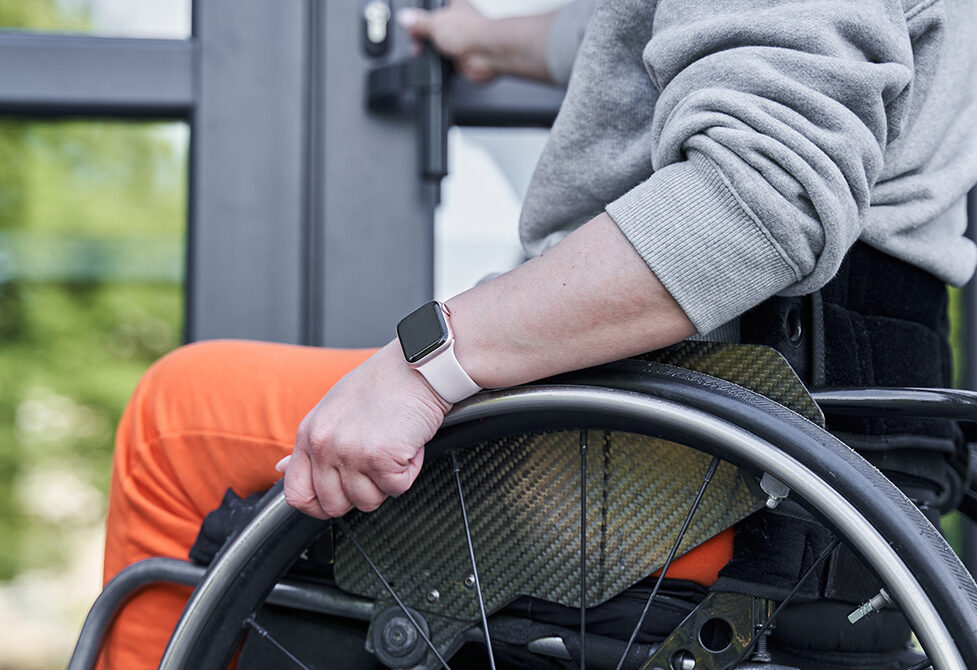- Our member’s public library has a beautifully accessible restroom but says it’s reserved for children and caregivers.
- Let alone whether it’s kind or ethical, is it legal to bar wheelchair users from the most accessible restroom simply because they’re adults?
- Probably not, says Marsha Mazz, our Accessibility Services director of codes and standards. She explains why.
Question: My local library won’t let me use its accessible “family restroom” unless I have a kid in tow!
In fact, its sign says, “Reserved for Children and Caregivers.”
Evidently, adult wheelchair users like me are unwelcome, even though this restroom better accommodates my disability. For example, the grab bar is on my dominant side, and I can open and close the door behind me without any assistance.
While this kids-only restriction may be well-intended, it discriminates against me and other adults with disabilities.
What can I do?
Sincerely,
Gotta-Go in Maryland
* * * * *
Answer: An unforeseen consequence of the 1991 ADA Standards requirement for all restrooms to be accessible was that the segregated “handicap” restroom disappeared.
This left folks who needed the help of opposite-sex caregivers no place to go.
At the urging of Judy Heumann and other U.S. Access Board members, I successfully proposed the building code requirement for family restrooms in the early 2000s when I was on staff. There was never any intent to restrict the use of these toilets to people with caregivers, although we hoped that people who could use the other restrooms in the facility would choose to do so. A sign requesting such courtesy is perfectly appropriate.
So, back to the library’s potentially discriminatory policy. Is it OK to provide children and their caregivers with their own restrooms? Maybe. But remember that the ADA requires facility owners and operators to make reasonable modifications to their policies, practices, and procedures to avoid unlawful discrimination against individuals with disabilities. In the case where the family restroom is more accessible for you, you should be allowed to use it.
What Makes a Modification Reasonable?
A frequently cited example of a reasonable modification of a policy is to allow service animals in public places where dogs are generally prohibited. But not every request for a modification of policy is “reasonable.” For example, a person might ask that their service animal accompany them into surgery. Yet, permitting Fido in the operating room could arguably pose a safety risk to the patient and the staff.
But the question about the library’s policy is simple. What’s more “reasonable” than allowing an independent adult to use the accessible restroom that best serves their disability needs?
Look at what the law says:
28 CFR 36.130 (b)(7)(i) A public entity shall make reasonable modifications in policies, practices, or procedures when the modifications are necessary to avoid discrimination on the basis of disability, unless the public entity can demonstrate that making the modifications would fundamentally alter the nature of the service, program, or activity.
You might get the library to change its policy by filing an ADA complaint with the U.S. Department of Justice. But there may be a faster way for you to get relief.
According to the Maryland State Library, each of the state’s 23 Counties and Baltimore City operates and regulates its own library system. In turn, each of these is governed by a Board of Trustees. I suggest you write to your library’s Board and copy the Maryland Department of Disabilities.
If you have difficulty finding who to talk with in your county, contact the Mid-Atlantic ADA Center. It is part of a National Network of ADA Centers. There is at least one in each region of the country, and they are often the best folks to contact for information about local laws, organizations, and services pertaining to disability.
— Marsha Mazz


